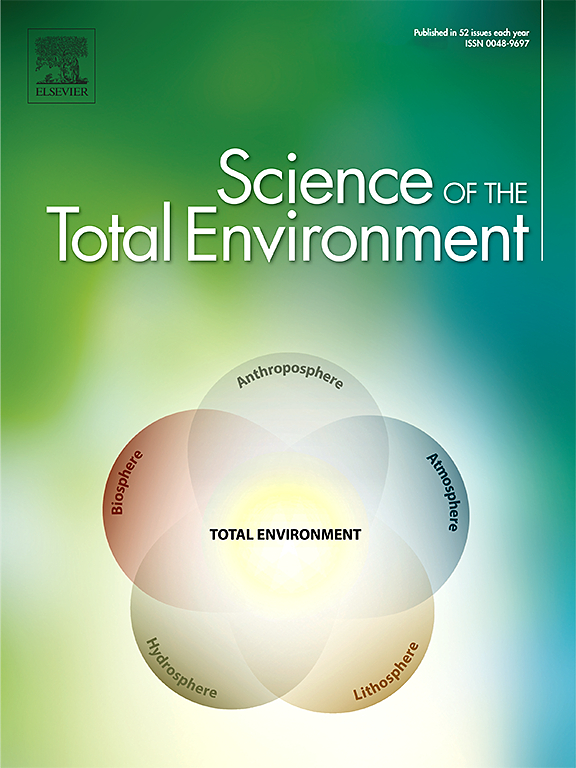Projected impacts of future climate change on the aboveground biomass of seagrasses at global scale
IF 8.2
1区 环境科学与生态学
Q1 ENVIRONMENTAL SCIENCES
引用次数: 0
Abstract
Seagrasses are crucial marine ecosystems that have experienced declines due to anthropogenic and climate change impacts. The projected future climate change suggests additional seagrass losses, but no global-scale estimates are currently available on the potential changes in aboveground biomass of seagrasses. We modelled and quantified the current potential aboveground biomass (AGB) of seagrasses on the global scale and projected future AGB under contrasting Shared Socioeconomic Pathway (SSP) scenarios, from low emissions (SSP1–1.9) to high emissions (SSP3–7.0 and SSP5–8.5). A machine learning algorithm (Boosted Regression Trees) fitted a comprehensive AGB dataset against biological and anthropogenic meaningful predictors. The model performed with high accuracy (deviance explained: 0.83), highlighting the role of genus and temperature conditions in defining global AGB patterns. The model estimated a present-day average AGB of 133.83 gDW·m2 (DW, dry weight) and a total global AGB of 0.0673 Pg DW. Future projections were highly dependent on the emission scenario, with losses in AGB ranging between 4.25 % and 9.25 % and in overall AGB between 9.96 % and 10.26 % across scenarios. Particularly, the higher emission scenario projected severe regional losses along the coastlines of the Tropical Eastern Pacific, the Eastern Indo-Pacific, the Temperate Northern Pacific, and the Tropical Atlantic, and gains along the Temperate Southern Africa and the Arctic regions. Our global estimates underline that fulfilling the Paris Agreement, as well as conserving and monitoring populations most affected by combined anthropogenic pressures would help to limit seagrass AGB declines, thereby supporting the multiple ecological services of seagrasses.

求助全文
约1分钟内获得全文
求助全文
来源期刊

Science of the Total Environment
环境科学-环境科学
CiteScore
17.60
自引率
10.20%
发文量
8726
审稿时长
2.4 months
期刊介绍:
The Science of the Total Environment is an international journal dedicated to scientific research on the environment and its interaction with humanity. It covers a wide range of disciplines and seeks to publish innovative, hypothesis-driven, and impactful research that explores the entire environment, including the atmosphere, lithosphere, hydrosphere, biosphere, and anthroposphere.
The journal's updated Aims & Scope emphasizes the importance of interdisciplinary environmental research with broad impact. Priority is given to studies that advance fundamental understanding and explore the interconnectedness of multiple environmental spheres. Field studies are preferred, while laboratory experiments must demonstrate significant methodological advancements or mechanistic insights with direct relevance to the environment.
 求助内容:
求助内容: 应助结果提醒方式:
应助结果提醒方式:


